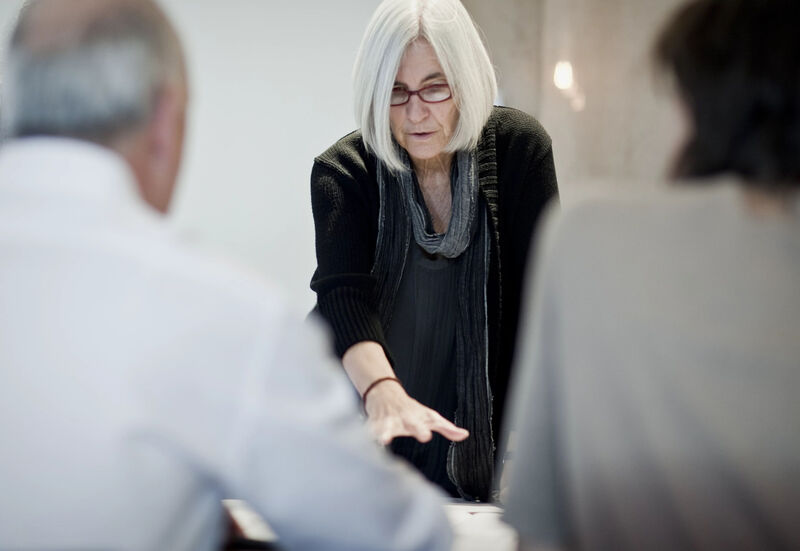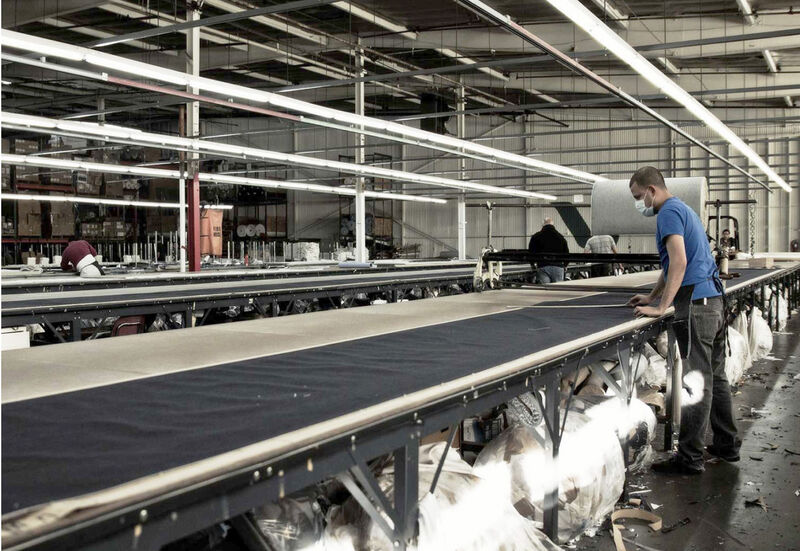We’re Still a B Corp. Here’s What That Means.
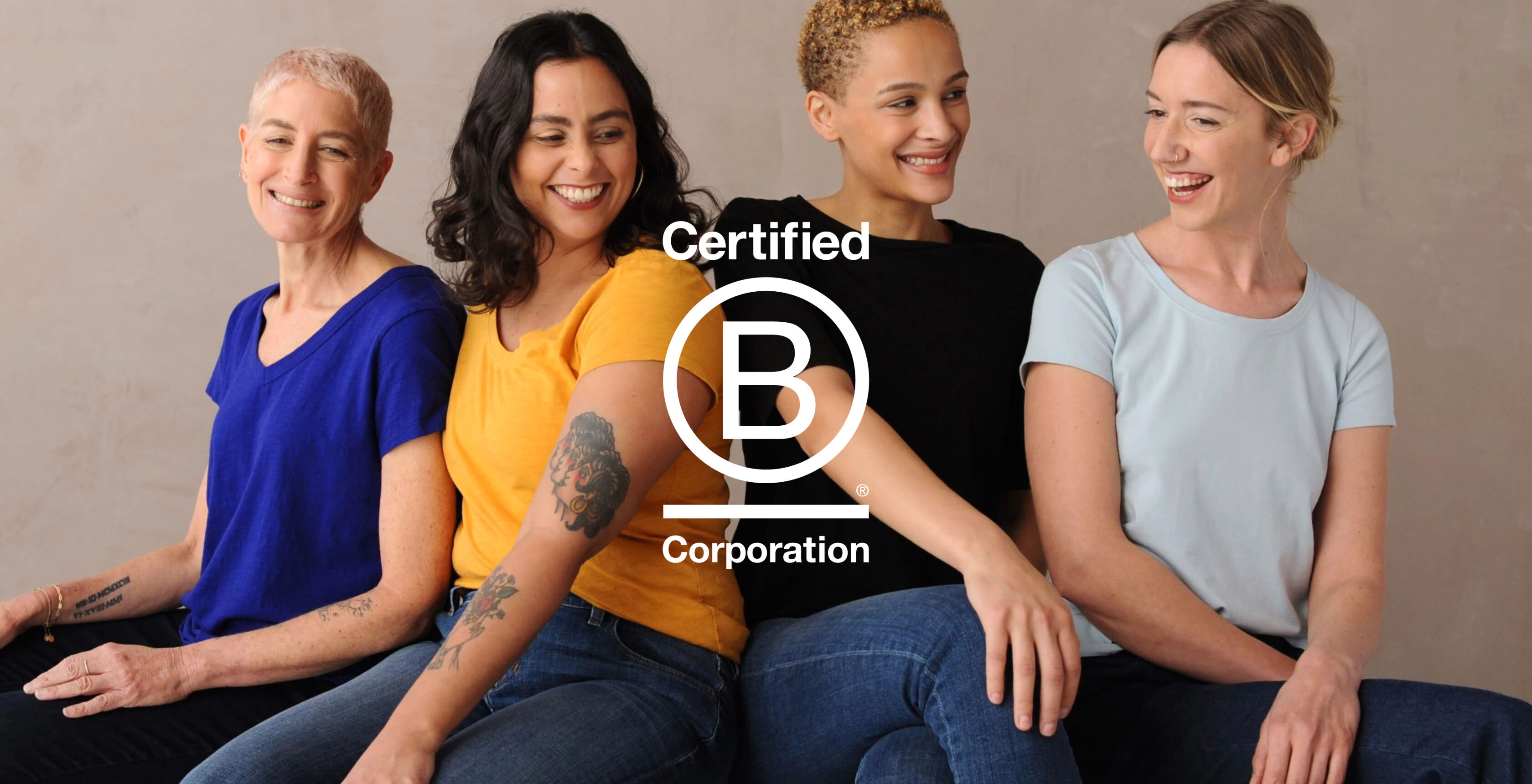
Update: In 2024, we were recertified for the fourth time, making 2025 our tenth consecutive year as a B Corp. We’re proud to share that our latest score increased by 20 points—an all-time high.
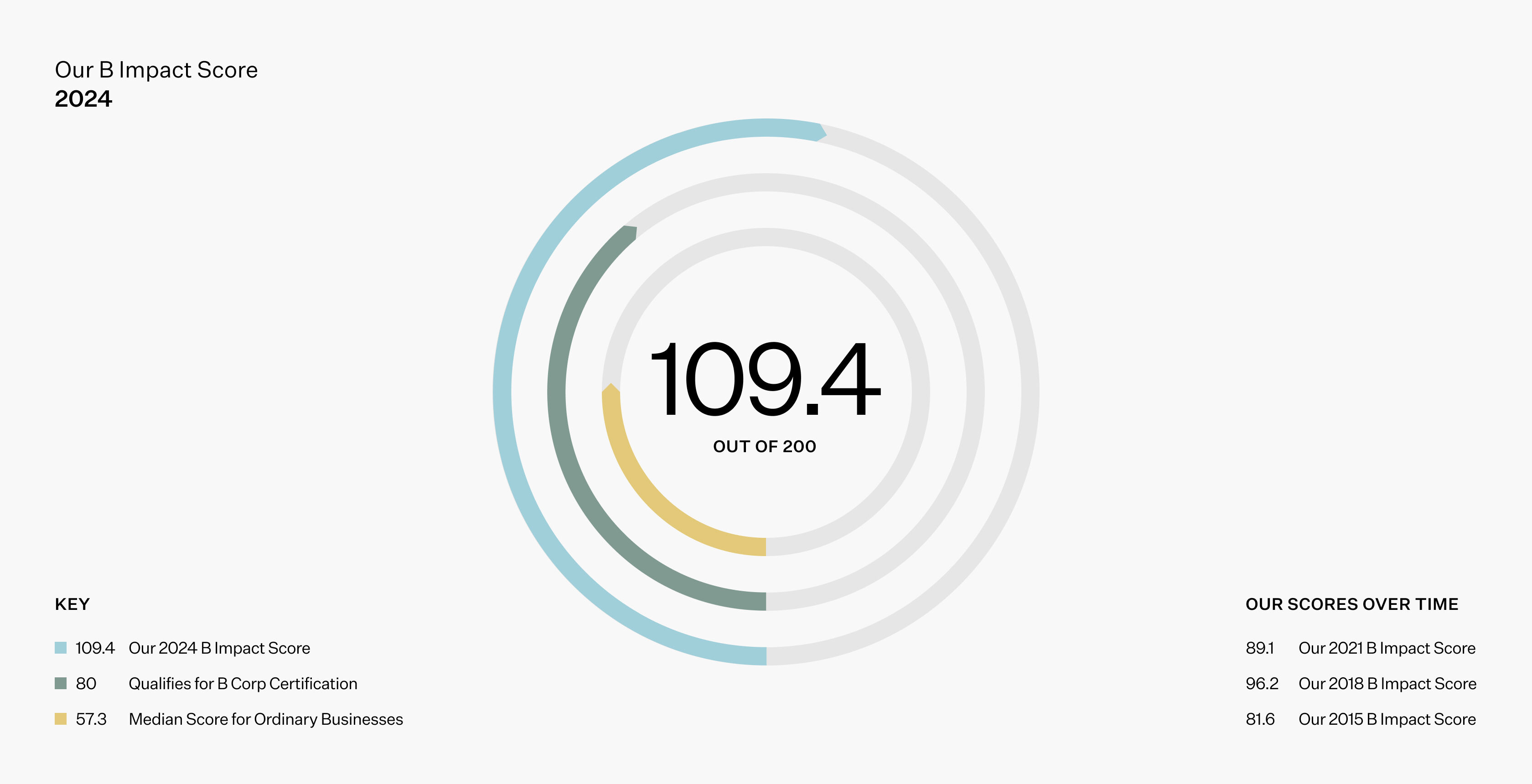
Our 2024 B Impact Score
In 2015, we joined iconic brands like Patagonia and Ben & Jerry’s to become part of B Corp’s global network of businesses working toward systemic change. We’ve been evaluated and recertified every three years since, and in 2024, our score increased to an all-time high of 109 out of 200.
Because we believe in the well-being of workers and their communities, in 2023 we supported our top two suppliers to become Fair Trade Certified™, improving our social performance in the B Lab Impact Assessment. We increased the amount of wool fibers certified to the Responsible Wool Standard, which means better land and animal stewardship. We also chose EcoVero™ viscose fibers because they require less water and less energy than conventional fibers. All these changes together contributed to an even stronger environmental performance, resulting in our highest score yet.
Our progress is especially meaningful given that our previous score, assessed in 2020, wasn't as high as we'd hoped. One unexpected benefit of being evaluated during our toughest year on record is that it showed us who we really are as a company—and inspired us to push even harder to create positive impact in the world.

Our 2021 B Impact Score
In 2021, our score was 89 out of 200 points—down seven points from 2018. We decided to do some digging to learn more. It turned out that the B Lab Impact Assessments had grown more rigorous over those three years to keep up with best practices around social and environmental performance.
Technically, anything above a zero represents an incremental positive impact—and in 2021, B Corp scores fluctuated on average by ten points. Given that, parsing our seven-point score drop may feel like splitting hairs, but it helped us glean valuable insights on where we were making the most impact, and where we had room to grow.
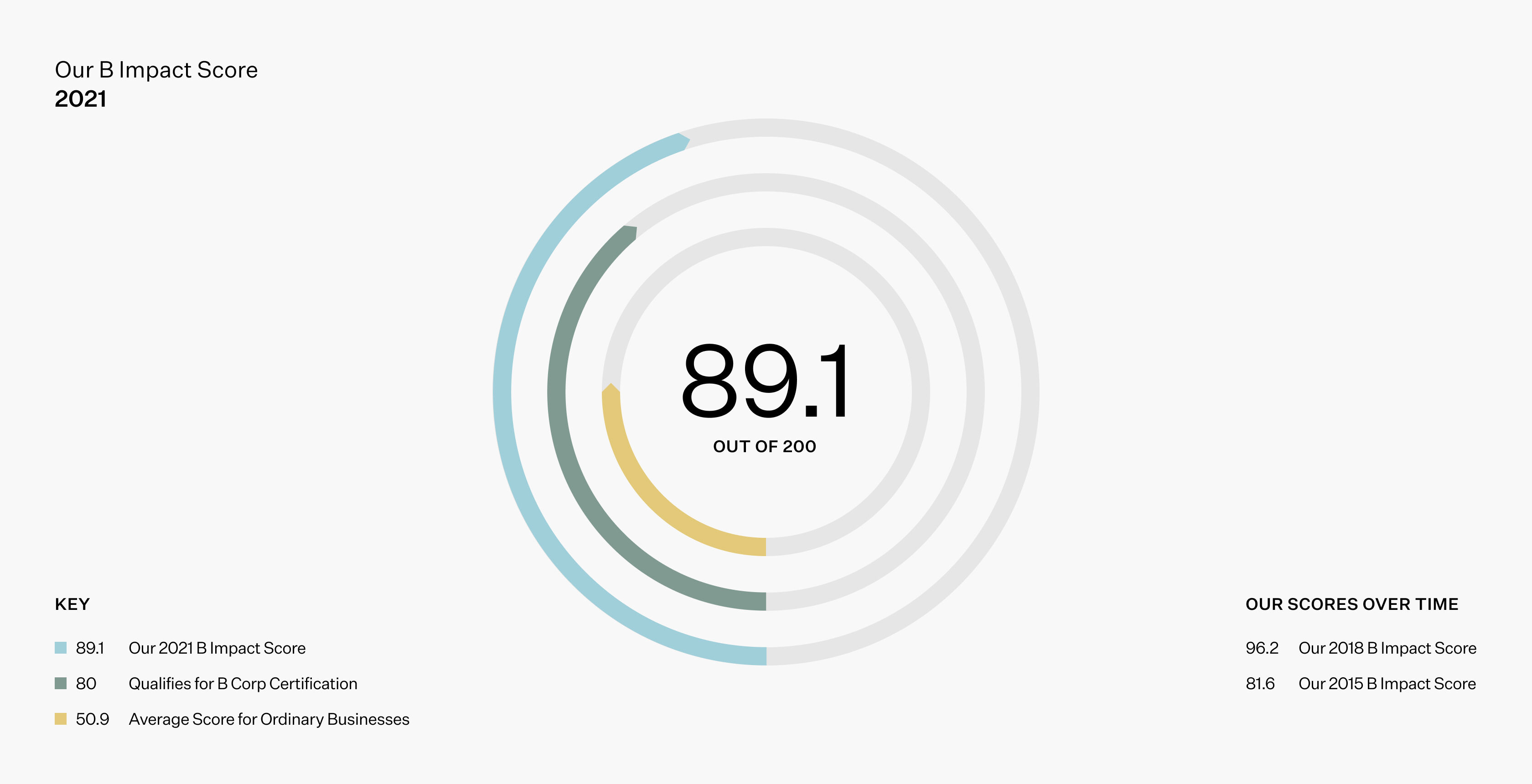
WHAT WE LEARNED
First, the bad news: In 2020, we made the difficult decision to temporarily close stores and furlough some of our staff due to the pandemic. We ended up having to lay off over 20% of our workforce, which we publicly disclosed on the B Corp website. Economic realities meant that revenues decreased, and we had to pause our grantmaking and charitable giving programs.
The global turmoil disrupted supply chains and altered consumer demand. But as Susan Scow, Sustainability Impact Specialist at EILEEN FISHER, pointed out, overall, we made a conscious choice not to cancel orders already placed with suppliers, since we knew this would negatively affect them. Because of our commitment to building long-term relationships, “we ate the inventory where we could,” she explained. In short, people remained our priority.
Inside our company, we focused on Covid safety protocols that would protect everyone. And after the murder of George Floyd sparked a national conversation about racial justice, we worked to create a space for discussion within the company. EILEEN FISHER held roundtables with Black employees so they could share what they were going through personally, talk about issues that came up in their day-to-day work, and communicate their needs.
Later that year, our Diversity, Equity & Inclusion team created a Black ERG (employee resource group), and EILEEN FISHER provided comprehensive unconscious racial bias training. Our B Lab Site Report audit took note of these efforts, stating, “EILEEN FISHER has gone above and beyond the norm when it comes to fostering an inclusive workplace.”

EVOLVING AS OURSELVES
Because we publicly disclosed our suppliers on the Open Supply Hub, we received high marks for transparency. We also gained extra points for resource conservation and toxin reduction by using more eco-preferred materials, including responsibly sourced Tencel™ Lyocell, organic cotton certified to the Global Organic Textile Standard (GOTS) and fabrics from dyehouses that use safe chemistry. With reduced demand in 2021, cutting out conventional materials and doubling down on eco-preferred was an easy choice.
We stayed true to who we are: a company committed to doing business in a way that actually makes things better. Take for instance our commitment to investing in regenerative agriculture to promote soil health and biodiversity—a specific aspect of the B Lab assessment. We won’t get full credit for our efforts unless regenerative fibers constitute the majority of our raw materials, but that doesn’t mean we shouldn’t keep working toward it. Because systemic change over the long run is more important than short-term numbers.
We’re proud to be a B Corp. And while the assessments are a valuable tool that keeps pushing us to re-evaluate our practices, we’re also following our own North Star. Whether it’s part of a certification process or not, we’ll always look for ways we can have the most positive impact—for workers, customers, communities and the environment.
